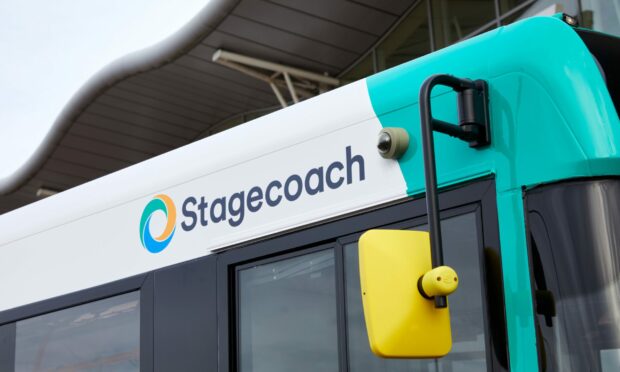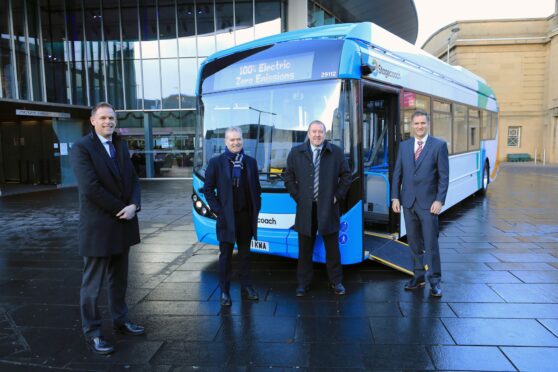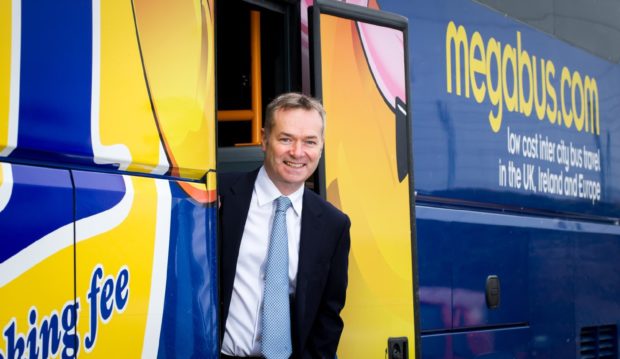Transport giant National Express has agreed terms for an all-share takeover of Perth-based rival Stagecoach.
The deal brings together two of the UK’s biggest bus and coach firms.
The boards have agreed that a Stagecoach share will be worth 0.36 new National Express shares.
It means National Express shareholders will own approximately 75% of the group.
This represents an 18% premium on the Stagecoach share price in September, before the merger talks were revealed.
More time to finalise a deal was granted last month.
Benefits of Stagecoach and National Express merger
National Express believes combining the companies could produce annual cost savings of £45 million.
The two boards believe the larger group will result in “significant value creation for both sets of shareholders”.
National Express said it will be able to reduce its gearing and be able to exploit opportunities in its Spanish and North American businesses.
National Express said it will also “provide enhanced capacity for an attractive and growing dividend”.
Stagecoach chief executive’s hopes
Martin Griffiths, chief executive of Stagecoach, said: “Our companies have a shared vision around helping to build more sustainable communities and secure a net zero future.
“We also both have a strong track record of investing in our people and in our services to deliver sector-leading customer service, operational excellence and great value travel.
“This is an exciting opportunity to bring together two of the UK’s iconic transport brands.”
Ignacio Garat, chief executive of National Express, will keep the same role at the merged firm.
What happens next for Stagecoach and National Express deal?
The combined group will have a fleet of around 40,000 vehicles and a workforce of approximately 70,000 people.
More than a billion passenger journeys made annually on its services.
The deal is subject to shareholder approval and is also likely to attract the attention of the Competition and Markets Authority (CMA).
CMA concerns would likely centre on whether the deal weakened competition in certain regions or raised the prospect of higher fares.
National Express said it could not rule out the prospect of the combined company being required to take “remedial action” in a bid to secure a green light in advance.
It expects the merger to take around a year to complete.
Stagecoach history
Stagecoach was born in 1980 after Dame Ann Gloag bought a school bus. Her brother Sir Brian Souter used his father’s redundancy money to buy two coaches.
At that time, bus services across Britain were very much part of the public sector, owned by a mix of council and state-owned transport authorities.
This changed in 1985, when Thatcher’s government announced plans to deregulate all bus services outside London.
Stagecoach expanded rapidly, buying up bus operations throughout Britain. When the firm listed on the stock exchange in 1993, it was worth £134 million.
Following privatisation of the rail network in 1995, Stagecoach bid for one of the new rail franchises – South West Trains, the UK’s biggest rail franchise.
Stagecoach then revolutionised the transport industry with the Megabus brand in 2003, with the fares starting at a headline-grabbing £1.
It has been a rocky road for the company of late. In 2019 Stagecoach losing its three rail franchises after a dispute over pension liabilities with the Department for Transport.
It then saw passenger numbers plummet during the Covid-19 pandemic.
The new agreement comes after National Express rejected a £1.7 billion merger deal mooted by Stagecoach in 2009.
This failed attempt would have seen Stagecoach own the majority of the combined group, with National Express left with 40%.



